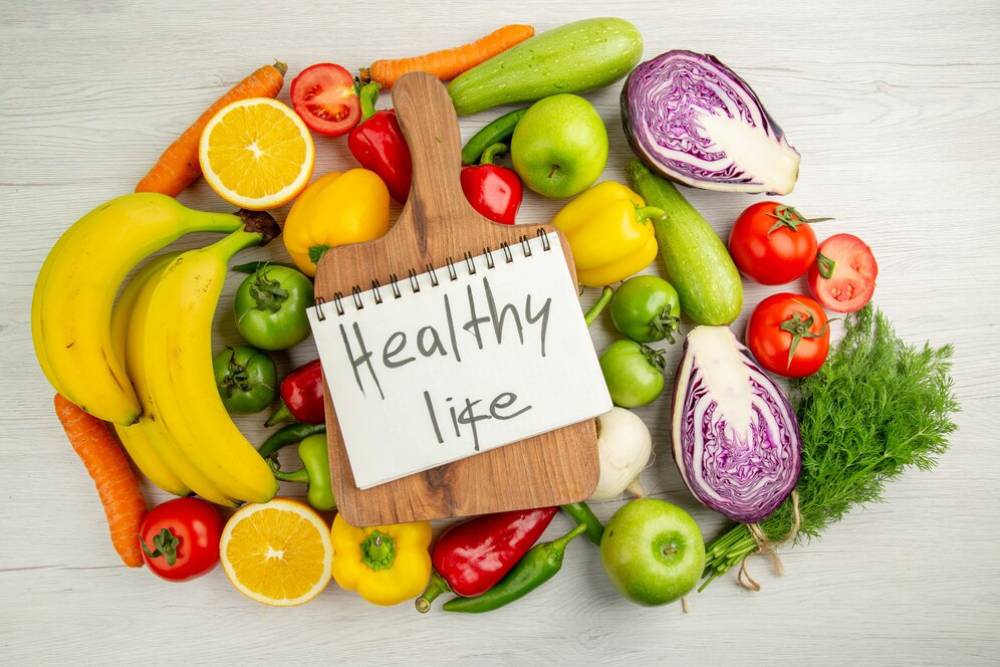
How to Create a Balanced Diet for Optimal Health
With most people having a fast lifestyle nowadays, a healthy, balanced diet is a requirement. There is so much nutrition information out there it can be hard to know what a healthy diet looks like. This guide will break down balanced eating and provide practical meal-planning advice to foster your well-being.
A healthy, balanced diet is necessary for everything from energy to mental clarity. They say healthy eating requires giving up flavour, but you can have nutritious, tasty, and filling meals. Your food choices responsibly give your body essential nutrients while enjoying your meals.
Key Benefits of a Balanced Diet

Why It Matters
A healthy diet is essential for health in general and has many benefits, including weight control. Here’s why it’s important:
- Nutrient Sufficiency: Provides Necessary vitamins, minerals, proteins , and healthy fats for the body’s functioning.
- Disease Prevention – Including nutrient-rich foods reduces the risk for chronic diseases, including heart disease, diabetes, and some cancers.
- Better Mental Health – Healthy eating can help you feel less anxious and depressed and can help improve cognitive function as well.
- Increased Energy Levels—Proper nutrition gives you a constant stream of energy without spikes and drops, reducing fatigue and increasing daily productivity.
- Weight Management – Helps maintain a healthy weight, which is key for overall well-being.
Quick Guide to Create a Balanced Diet
Step 1: Understand Your Nutritional Needs
Everyone has unique dietary needs based on age, gender, activity level, and health goals. While a nutritionist can help, here are some general tips:
- Caloric Intake – Find your daily calorie needs using your basal metabolic rate (BMR) and activity level.
- Macronutrient Balance: Carbohydrates should make up 45-65% of your diet, proteins 10-35%, and healthy fats 20-35%.
- Micronutrient Focus – Eat nutrient-rich foods like leafy greens, nuts, seeds, and lean proteins.
Pro Tip: Batch-cook your meals for the week to save time and reduce the temptation of unhealthy takeout or fast food.
Step 2: Plan Your Meals for Optimal Nutrition
Meal planning helps create a diverse and nutritious diet. Here’s how to structure your meals:
Breakfast
- Prioritise Protein – Start your day with protein-rich foods like eggs, Greek yoghurt, or a protein smoothie.
- Include Whole Grains – Add oats, whole-grain bread, or quinoa for energy.
Lunch
- Balance Your Plate – Include lean proteins, whole grains, and colourful veggies.
- Healthy Fats – Add avocado, nuts, and olive oil for extra nutrition.
Dinner
- Lean Proteins – Choose fish, chicken, tofu, or legumes.
- Fiber-Rich Foods – Pair proteins with veggies and whole grains for a complete meal.
Important Tip: Include a variety of colourful vegetables in every meal. The more colourful your plate, the more diverse nutrients you’re getting.
Step 3: Smart Snacking for Sustained Energy
Snacking can fit into a balanced diet if done wisely. Choose nutrient-dense options like:
- Fruits and Nuts – A handful of almonds with an apple or banana.
- Vegetable Sticks with Hummus – Carrots, cucumbers, and bell peppers dipped in hummus.
- Greek Yogurt with Berries – Packed with protein and antioxidants.
Pro Tip: Keep healthy snacks on hand, like raw nuts, fruits, or vegetable sticks, so you can avoid reaching for processed options when you’re hungry between meals.
Step 4: Stay Hydrated
Hydration is crucial for good health. Aim for 8-10 glasses of water daily, and consider herbal teas or infused water for variety. Staying hydrated aids digestion, keeps skin healthy, and boosts energy.
Advanced Tips for Enhancing Your Diet

Best Practices for a Healthy Diet
- Variety is Key – Eating a wide range of foods ensures diverse nutrients.
- Mindful Eating – Pay attention to hunger cues and eat slowly to improve meal satisfaction.
- Cooking at Home – Preparing meals lets you control portion sizes and ingredients.
Pro Tip: Try using smaller plates to help control portions and prevent overeating, while still enjoying a satisfying meal.
Common Mistakes to Avoid
- Skipping Meals – This can lead to overeating later. Regular meals keep your metabolism steady.
- Over-reliance on Supplements – While helpful, supplements shouldn’t replace whole foods.
- Excessive Processed Foods – Minimize processed foods high in sodium, sugar, and unhealthy fats.
Expert Recommendations
To further optimise your nutrition, consider these strategies:
- Intermittent Fasting – Alternating eating and fasting periods can support weight management and metabolic health.
- Personalised Nutrition – Genetic-based plans can tailor food choices for better health outcomes.
- Sustainable Eating – Choose locally sourced and seasonal produce for environmentally friendly options.
Secret Tip: Add a pinch of cinnamon to your meals or snacks—whether it’s in smoothies, oatmeal, or even coffee alternatives. It helps regulate blood sugar levels and adds a natural boost of flavour without extra calories!
Frequently Asked Questions (FAQs)
- What is the most essential part of a balanced diet?
A balanced diet emphasises foods rich in nutrients like proteins, healthy fats, and carbohydrates while limiting processed foods.
- Why eat more vegetables, anyway?
Use vegetables in smoothies, put them into soups or try roasted or grilled veggies for extra flavour.
- How to Meal Prep for a Balanced Diet: 9 Simple Ideas
Fonts, stick to simple components, which you can cook all at once, chop ahead or do both portions to simplify planning and encourage healthier eating habits.
- Can I eat dessert while following a balanced diet?
Yes! Choose healthier dessert options like dark chocolate, fruit-based treats, or yoghurt with honey.
- How do I stay on track when eating out?
Opt for grilled instead of fried foods, ask for dressings on the side, and prioritise lean proteins and vegetables.
- What role does hydration play in a balanced diet?
Water supports digestion, nutrient absorption, and energy levels. Staying hydrated is vital for your health.
A Balanced Approach to Nutrition

Eating a balanced diet is all about small, sustainable changes. Eating based on a well-adapted meal timing pattern can enhance your health and vigour. Eat well—A healthy diet should be pleasurable, which helps you follow it in the long term.
Will you make a small change today? Let us know in the comments below!